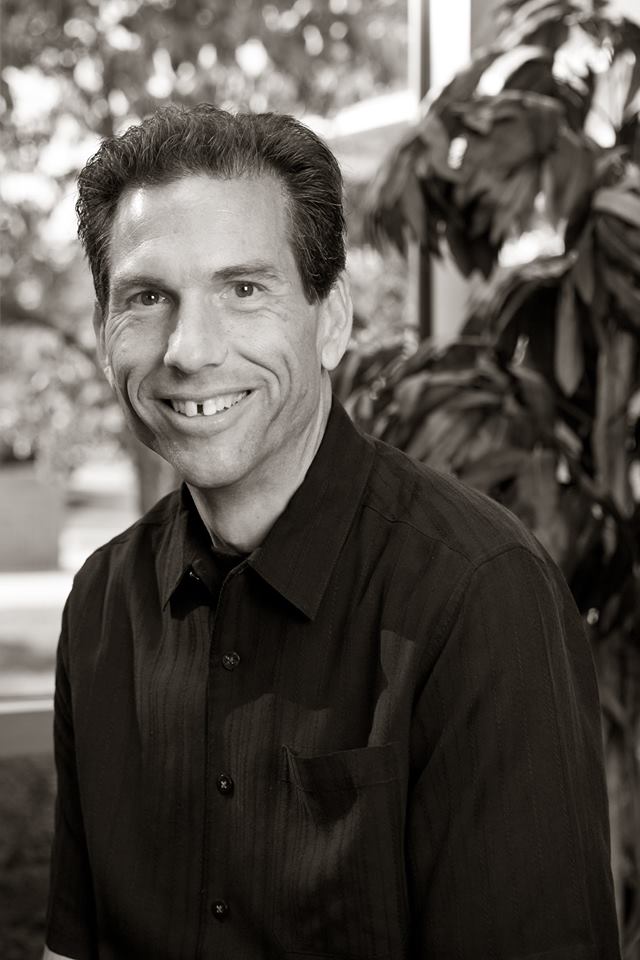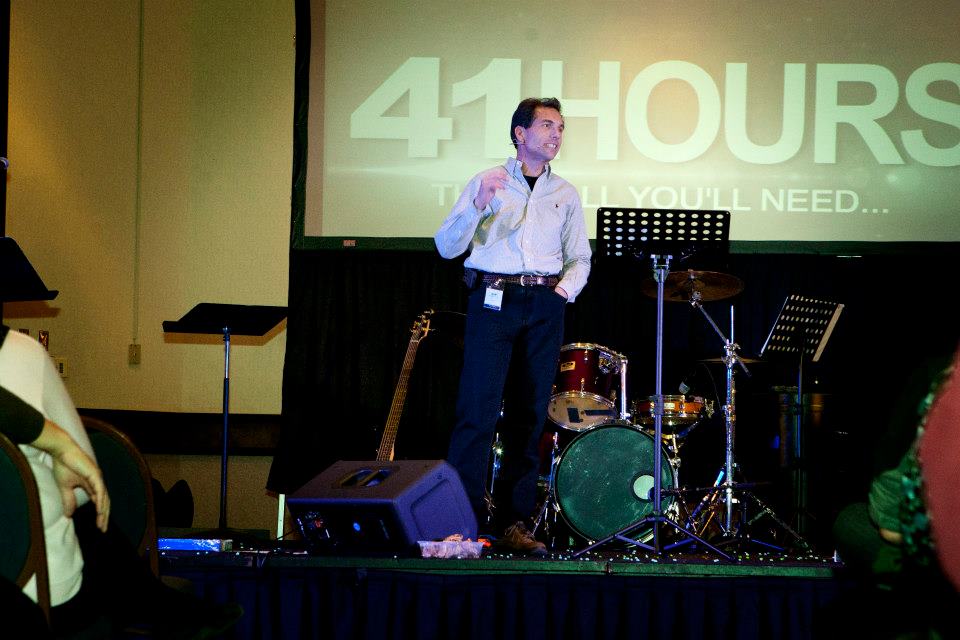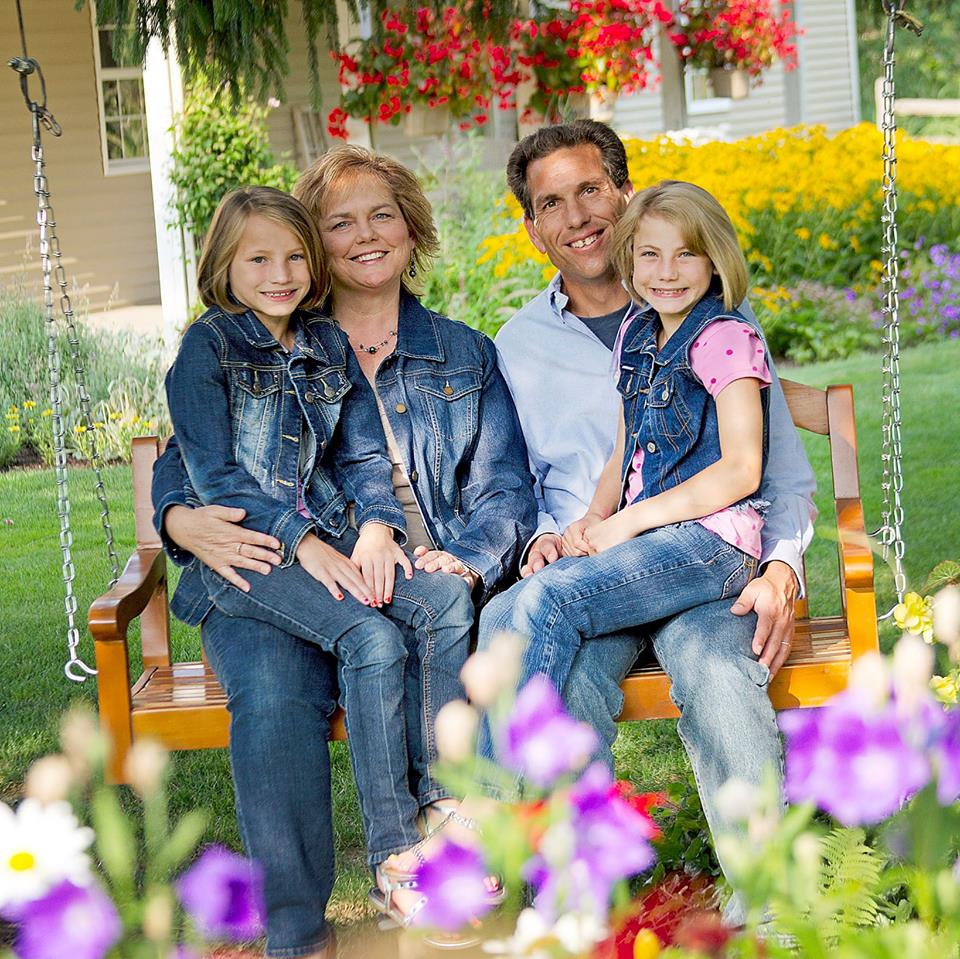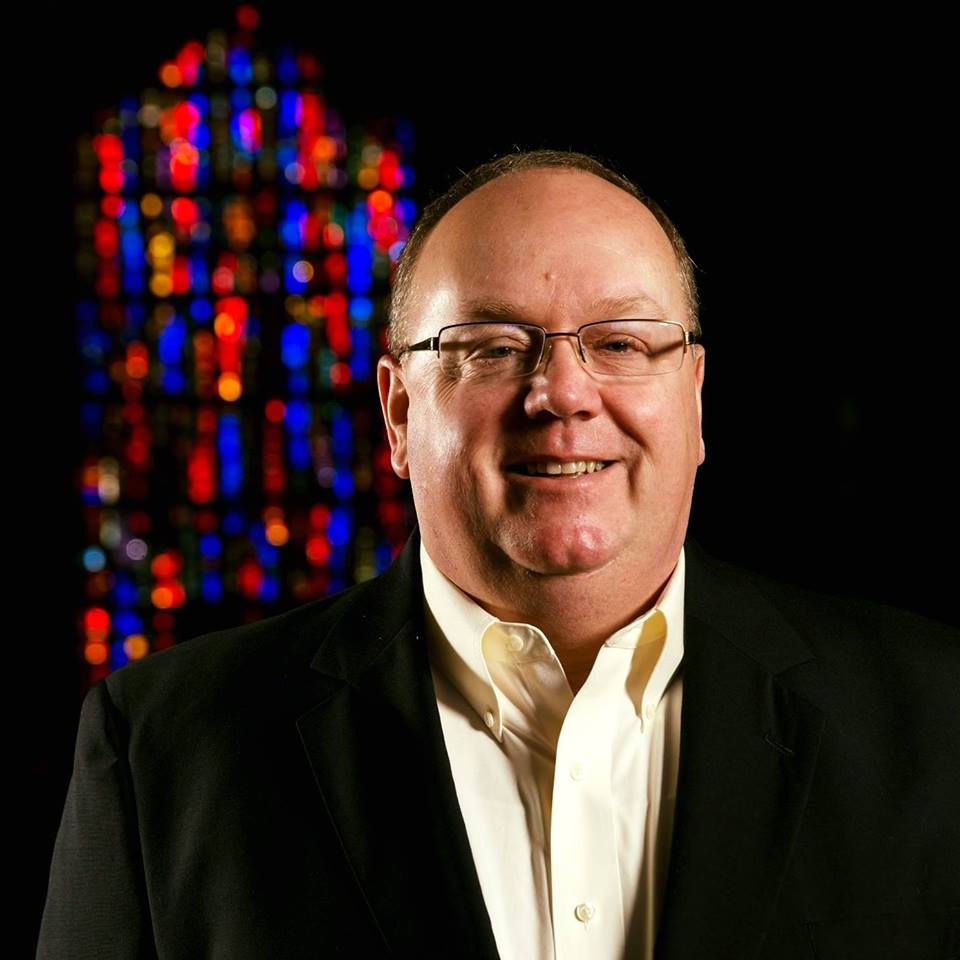By: Kendra Housel
—
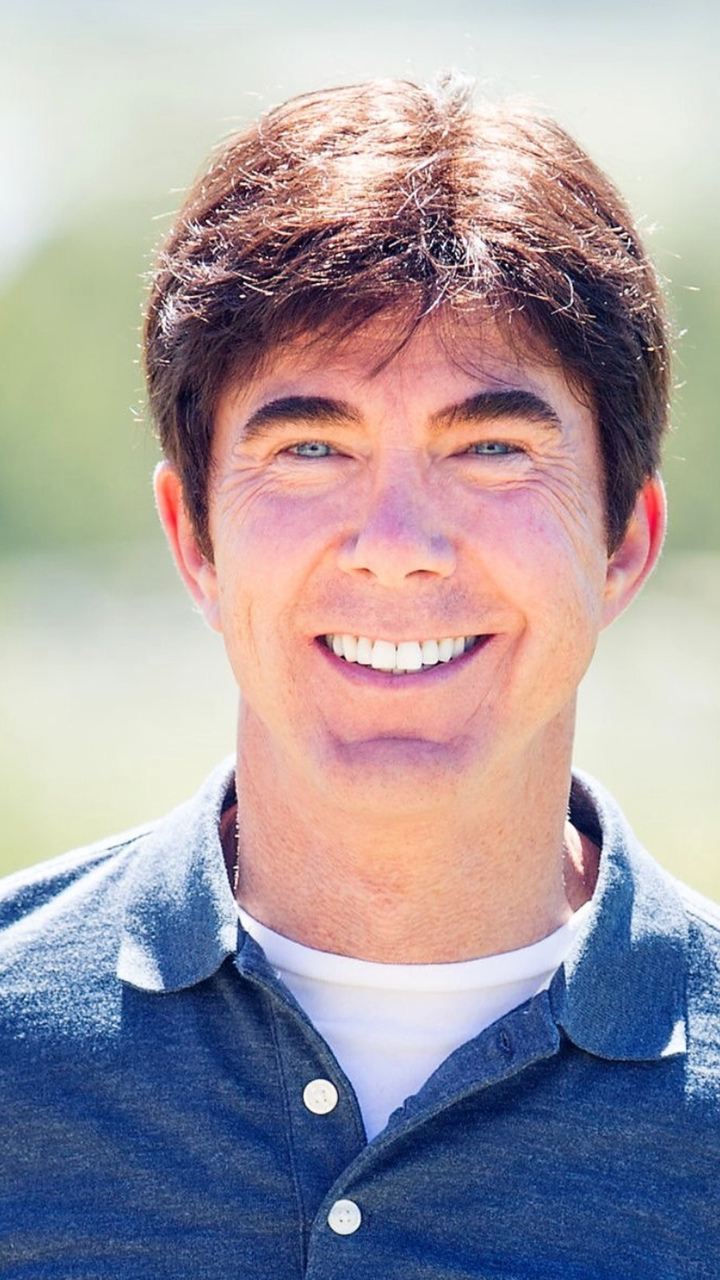 This year Indiana Wesleyan University’s biannual Summit event (where students gather for three days, morning and evening, for chapel) was lead by anointed speaker and Indiana Wesleyan University alumni Dwight Robertson. Robertson was an IWU student from 1975-1979 and graduated with a degree in ministry. He later received an honorary doctorate from Bethel College.
This year Indiana Wesleyan University’s biannual Summit event (where students gather for three days, morning and evening, for chapel) was lead by anointed speaker and Indiana Wesleyan University alumni Dwight Robertson. Robertson was an IWU student from 1975-1979 and graduated with a degree in ministry. He later received an honorary doctorate from Bethel College.
Robertson grew up knowing all about IWU (Marion College at the time). His mother and father are alumni and fell in love on campus. After college graduation, his parents were pastorally assigned to a small and remote church in Blue Eye, Pennsylvania. Dwight recalls that it was some of their college friends who encouraged, sent notes, money, necessities they were lacking on a minuscule income, always lifting them up in prayer. This was validation to Dwight growing up that long-term friendships and community could be found at his parent’s alma mater.
As a small boy he attended an alumni event with his parents and was indelibly struck by the lively music his father’s alumni trumpet trio played and how fun and sincere in their faith his parents college friends were. That weekend the IWU (Marion College) “family” community made a lasting impression.
Then during the Homecoming alumni event, Howard Noggle (Dwight’s folks referred to as “Mr. Marion College”) saw ten-year old Robertson seated on the front row. Walking down from the stage before the event started, Mr. Noggle approached and surprised young 10-year-old Robertson, giving him a shiny silver dollar, telling him it was an investment in Robertson’s college fund, and that he hoped he would use it to attend Marion College one day. Recalling the memory, Robertson said that Noggle noticed him and “sowed a seed in a young heart” that day.
As is often the case when a child’s parents both attended a certain school, Dwight took time to look at other schools besides his family’s alma mater. But after plenty of comparisons and prayer, Dwight was led to Marion along with his sister and thirteen other students from their small town in Sandy Lake, Pennsylvania.
A local pastor and alumni friend of Dwight’s parents, helped locate a Marion retail job (later he would hire Dwight to lead their church student ministries program during Dwight’s college days). With financial aid and university scholarship assistance, Robertson began his time as a student at Marion College in 1975.
Dwight enjoyed new relationships and college life, but recalls a special semester when he petitioned the Dean to take a few more credit hours and enrolled in a night “Evangelism and Missions” class with Dr. Charles Carter. Robertson had already begun his personal pursuit for more of God, more of God’s will and more of God’s glory to be manifested on the earth.
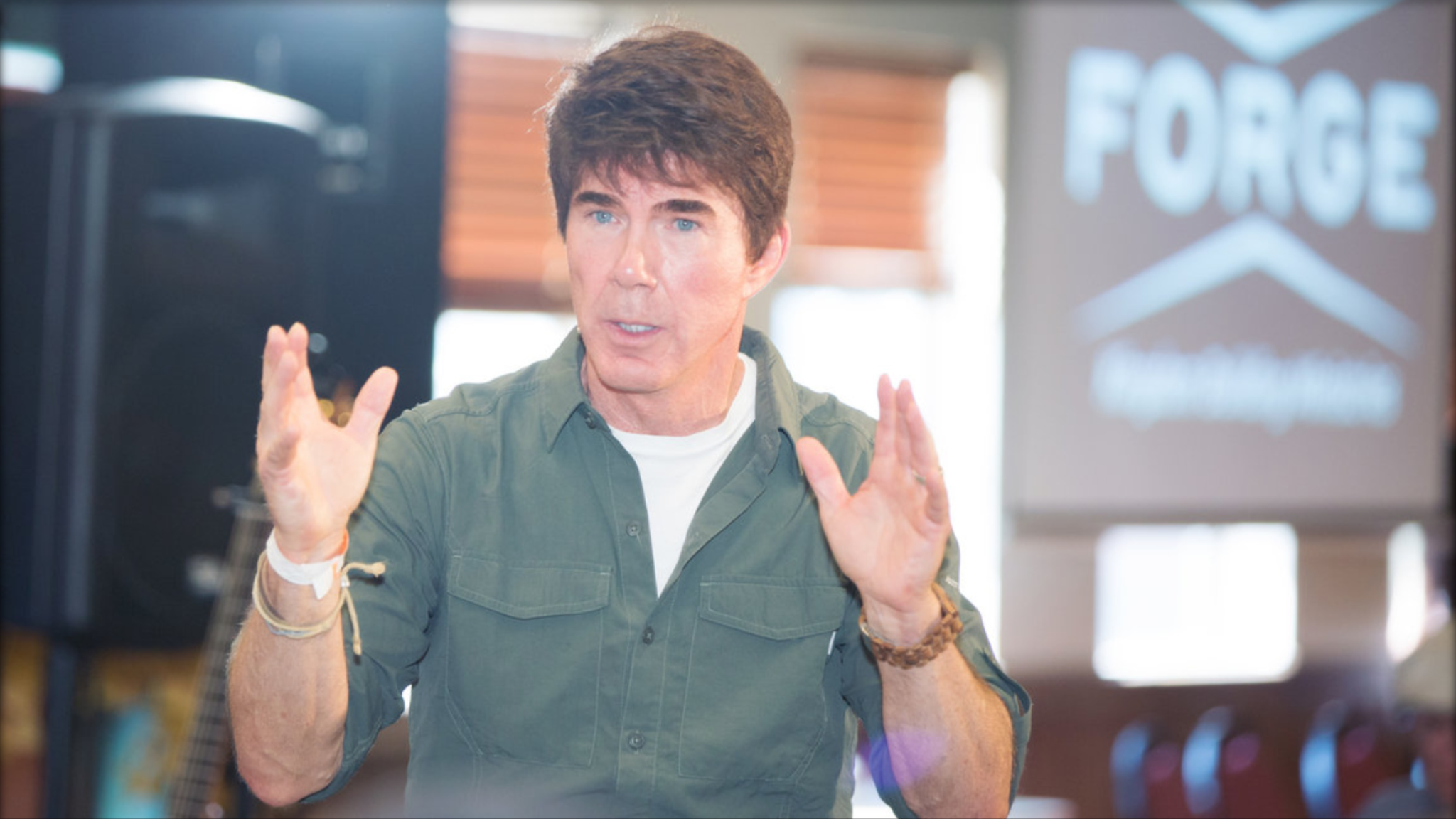 Robertson was not expecting his future life-course to be radically changed by just a single weekly “night class,” but change it did. The true catalyst was an assigned book for reading and discussion, “The Master Plan of Evangelism” by Dr. Robert E. Coleman. In class one night, Robertson confessed this required reading book had rearranged his understanding of and vision for authentic and lasting ministry, that this course and book would no doubt be used by God to set the course for his personal life mission. He now clearly understood that ordinary people are not God’s backup plan for reaching the world. Rather, we are God’s Plan A, and the plan is carried out and multiplied – one life at a time!
Robertson was not expecting his future life-course to be radically changed by just a single weekly “night class,” but change it did. The true catalyst was an assigned book for reading and discussion, “The Master Plan of Evangelism” by Dr. Robert E. Coleman. In class one night, Robertson confessed this required reading book had rearranged his understanding of and vision for authentic and lasting ministry, that this course and book would no doubt be used by God to set the course for his personal life mission. He now clearly understood that ordinary people are not God’s backup plan for reaching the world. Rather, we are God’s Plan A, and the plan is carried out and multiplied – one life at a time!
Robertson then began pursuing classes with Dr. Glen Martin, notorious for his fiery passion and deep conviction. He sensed such a unique “heart on fire” and “life in purpose” in this laser-focused and caring professor, who was passionate about God, people and a Biblical world-view. Martin’s classes clarified a discipleship worldview which embodies Kingdom values incarnated in people’s lives as everyday Kingdom laborers in every facet and sphere of society. Dwight became convictional about God’s desire for “ministers in every arena of life.”
In the midst of all this growth, Robertson wrestled as a college student who was undeclared in his major, seeking but not finding a specific “call” he’d heard so many others testify to having. He “wanted whatever God wanted,” but couldn’t find ease or clarity in selecting a major. He took classes in all sorts of disciplines, but eventually a job, not a class, led him to declare his major.
He loved helping people grow I their understanding of God’s love, their high value, and God’s unique plans and purposes for their life to be a part of God’s redemptive plan on the earth. Based on the confirmation and fruit God was bearing through His life as a full-time minister while also being a full-time student, he applied for upper Division status as a ministry major. He wrote his entry paper based on a “pastoral call” he had not received, but which he was okay with as perhaps God’s future plans would involve something a bit different. Robertson recounts a freedom that came with acceptance as a ministerial student without having an explicit ministry call. It provided “freedom to live outside the box for the rest of life.” He now looks back on that time of frustration with thankfulness, knowing it was his inability to feel one specific calling that gave him the ability after ten years in traditional local church ministry to found a unique para-church organization – FORGE – Kingdom Building Ministries, which he’s led as CEO for thirty-one years.
Robertson fondly spoke of an early season in the history of FORGE – Kingdom Building Ministries when he was speaking in New York at Houghton College and shared lunch with Dr. Jim Barnes. Dr. Barnes asked Robertson if he would be willing to have a conversation in the future if Barnes were to end up back at Marion College. He stated his conviction that the student body ion the Marion campus would benefit from what Robertson and his young team had to provide. Robertson, unaware that Barnes was about to become the next President, who would eventually negotiate the school’s namesake from Marion College to Indiana Wesleyan University, agreed to meet with him if such a hypothetical situation came to be. Within the first two weeks of Barnes’ presidency, Robertson received the phone call.
Barnes offered Robertson the opportunity to move out of his small Forge headquarters (a renovated garage on the backside of an ally in Marion) and set up offices in a building on campus for the next three years. In exchange for the space, Barnes asked that Robertson and his speaking team be available to speak for chapels, run youth events on campus and train his current “youth conference” staff. For the next three years Robertson and Forge ministry partnered with Indiana Wesleyan staff and students on campus and enrollment grew.
After three great years of on-campus ministry presence, the building Forge was being provided needed to be torn down. Robertson was faced with a new decision: where to permanently locate their headquarters. He and his team felt strongly that they should be centrally located nationally, located in a Central time zone to maximize service coast to coast, and supported by a hub city with a large national and international airport. In 1991, Kingdom Building Ministries moved from Marion, Indiana, to their current location in Denver, Colorado.
One term Forge ministry really loves to emphasize is the word “laborer.” Though it can be a difficult word to swallow, it is essential to understand in a personal walk with Christ that you are a “Kingdom Laborer.” Robertson said that “if you don’t understand that you are a laborer, you won’t be willing to get into the mud puddles of human need where ministry happens. Laborers get things done.” Synonymous with the often used IWU term “World Changer,” Kingdom Laborers do whatever it takes to complete the mission.
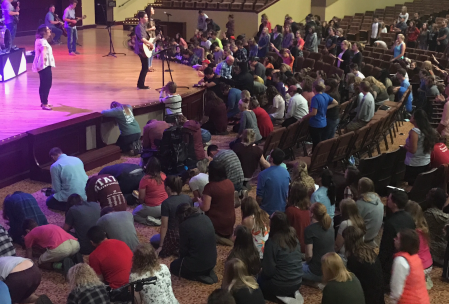
Robertson spent Summit week encouraging the IWU community to love God just a little more, every single day. He called students to prayer as a tangible way to love others, and to stop, see someone and spend time with them– to love the way Jesus does. His time speaking at IWU was highly impactful. To learn more about Dwight Robertson, his ministry with Forge: Kingdom Building Ministries, or to contact him about speaking for an event, please visit here.
—
Written by Kendra Housel, a writer for the Alumni Center. Kendra is a sophomore Education and Honors Humanities double major at Indiana Wesleyan University in the John Wesley Honors College. She is also a member of the University Chorale. She is passionate about serving Christ through writing, singing, and caring for others.
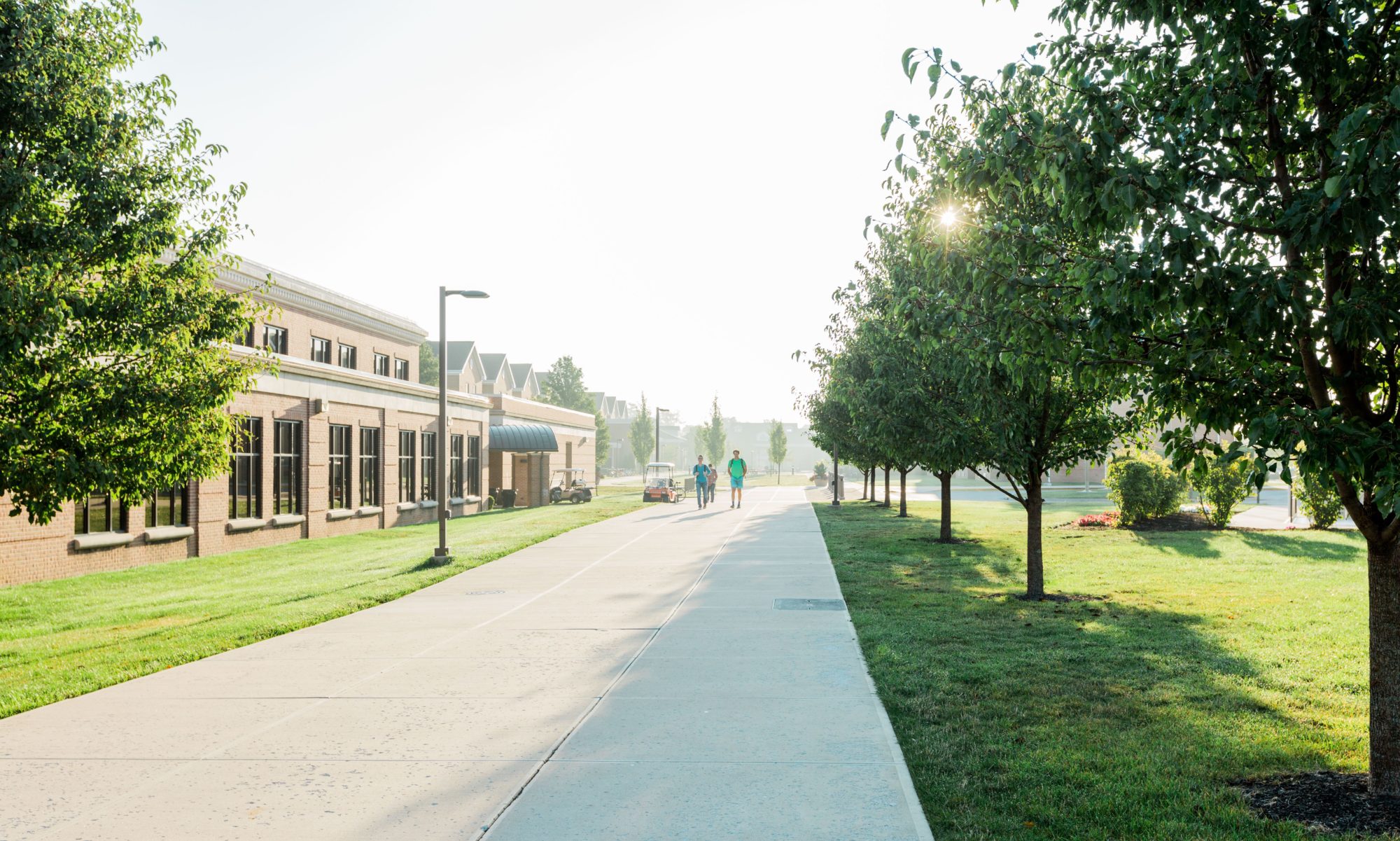

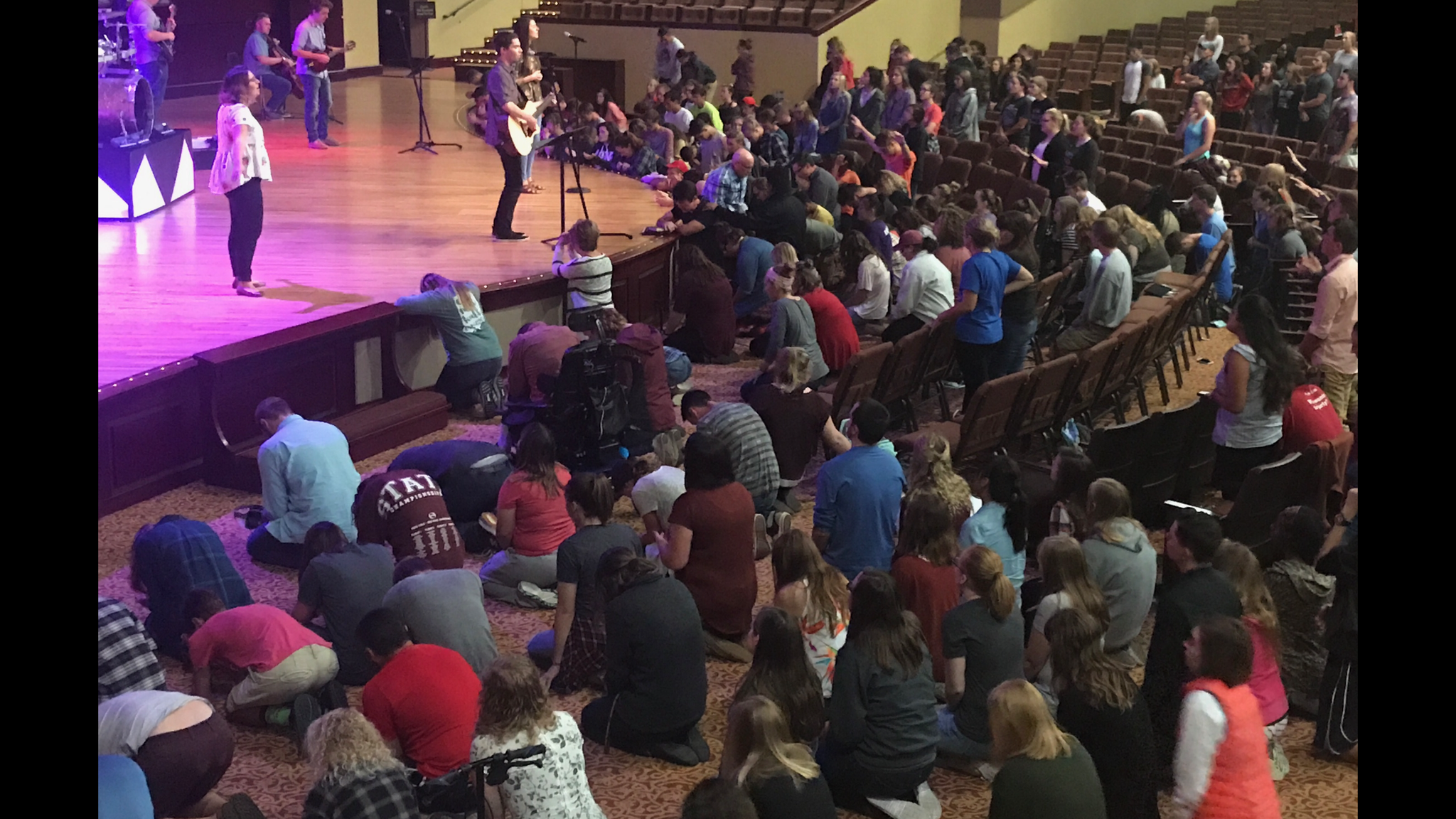
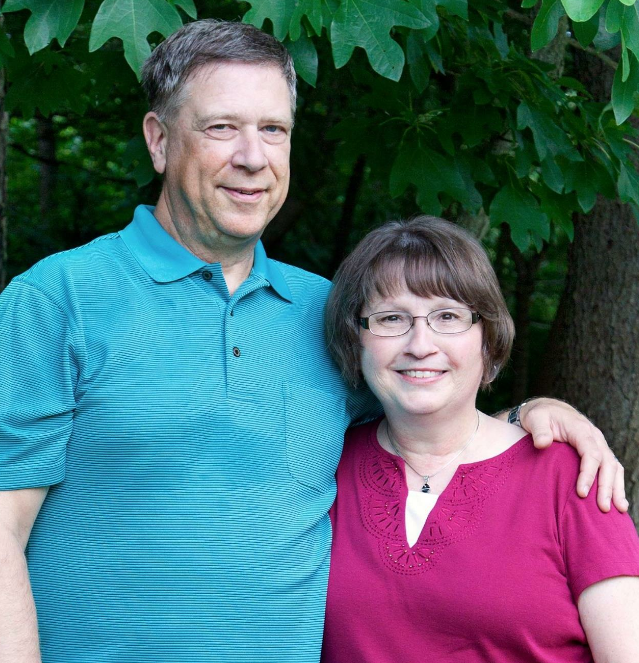
 Rick Weesner is the pastor at
Rick Weesner is the pastor at 